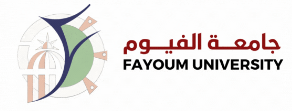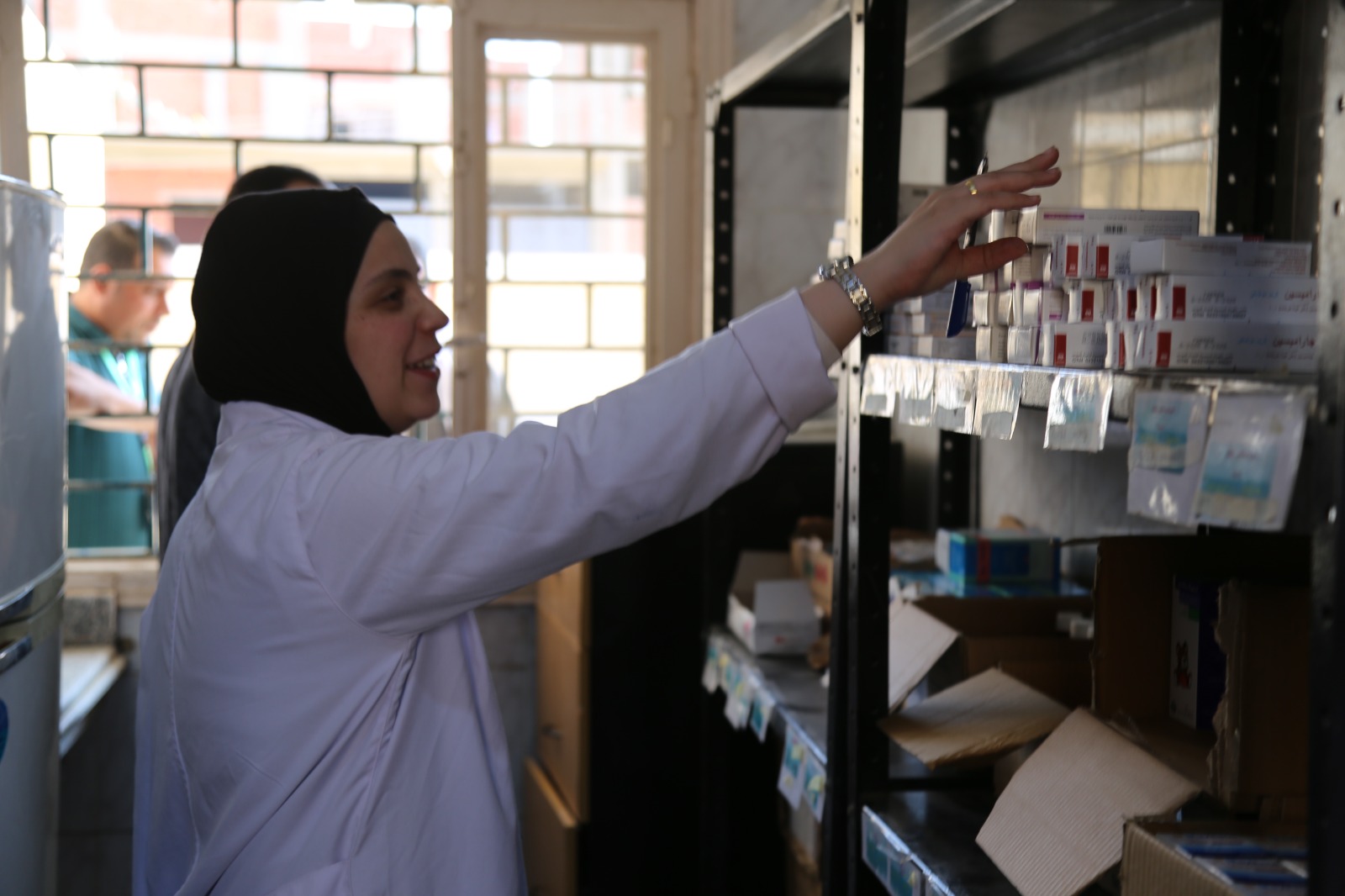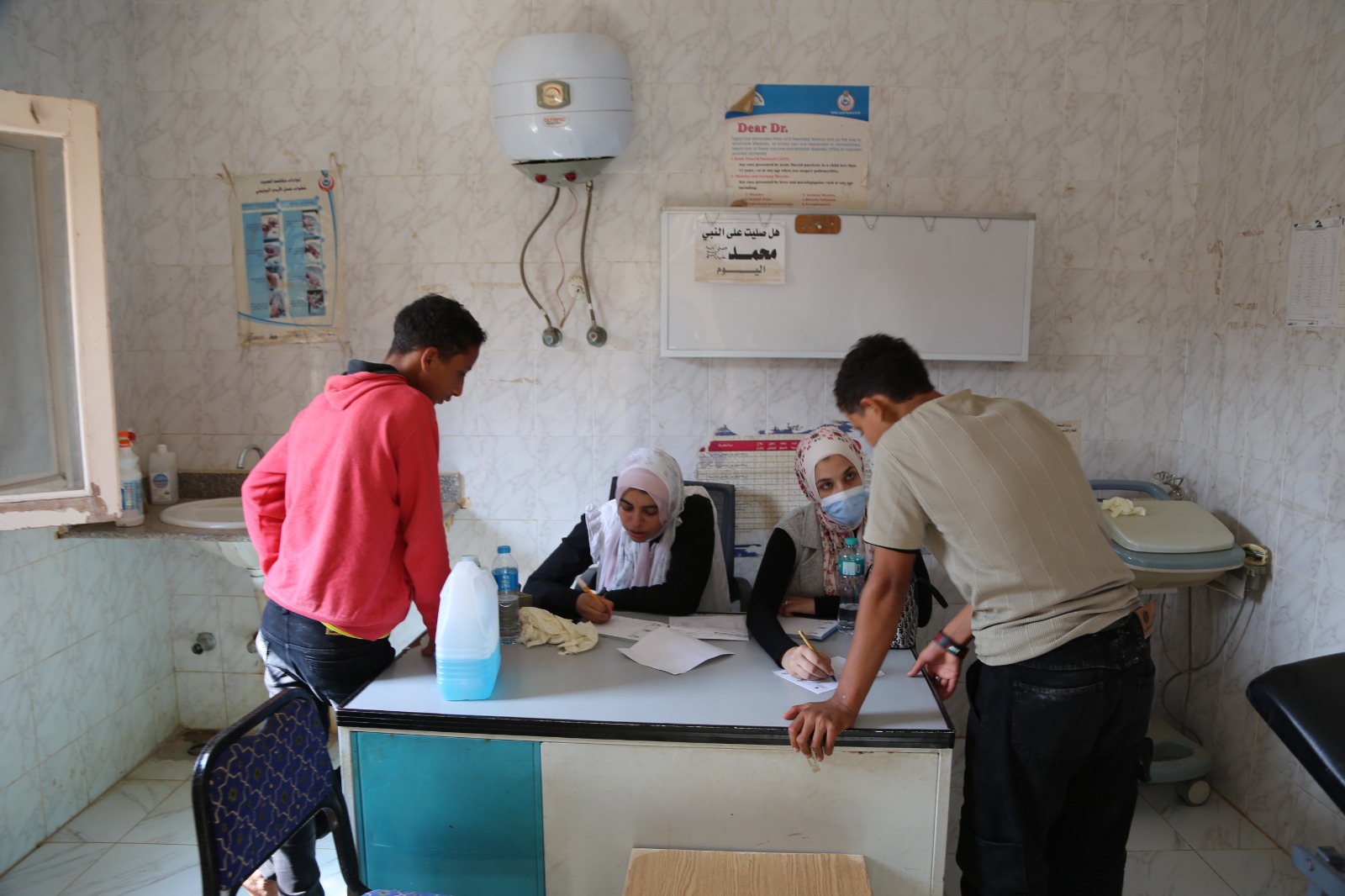Under
the patronage of Dr. Ahmed Al-Ansary, Governor of Fayoum, and Prof. Yasser
Magdy Hatata, President of Fayoum University, and under the supervision of Prof.
Assem El-Essawy, Vice President of the University for Community Service and
Environmental Development and Supervisor of the Postgraduate Studies and
Research Sector, Prof. Naglaa El-Sherbiny, Dean of the Faculty of Medicine,
Prof. Lamia Ahmed Ibrahim, Dean of the Faculty of Dentistry, and Dr. Nevin
Shaaban Abdel-Rabou, Undersecretary of the Ministry of Health in Fayoum, the
University's Community Service and Environmental Development Sector, in
cooperation with the Faculties of Medicine, Dentistry, and Social Work, the
Community Problems Monitoring Unit, and the Hayah Karima Foundation, organized
a comprehensive medical convoy to the village of Al-Mashreq Bahri at Yousef
Al-Seddiq
center.
This
took place in the presence of Dr. Mohamed Abdel-Aal Abdel-Aziz, Associate
Professor in the Department of Development and Planning, Faculty of Social
Work; Dr. Samar Tarek Hussein, Associate Professor of Social Work Methods; and
Dr. Shaimaa Mohamed Ramadan, Director of the Seminars and Conferences Department,
on Monday, November 17, 2025, at the village's health unit.
Prof.
Assem El-Essawy explained that the medical convoy successfully provided free
medical examinations and treatment to 1,178 patients from the village and
surrounding areas, distributed as follows:
•
Orthopedic Cases 346
• Internal Medicine Cases 289
• Dermatology Cases 187
• Pediatric Cases 293
• Dental Cases 63
He
added that the Faculty of Social Work participated in two awareness seminars
titled: Domestic Violence and Its Impact on Society, and Reproductive Health
and Women's Health.
Dr.
Mohamed Abdel-Aal addressed the concept of domestic violence as a serious
social phenomenon that threatens family cohesion and societal stability. He
emphasized that its negative effects extend to include psychological and physical
disorders, increase crime and violence rates, and impact productivity and
socio-economic development. This necessitates concerted efforts from civil
society and government agencies to provide a safe environment that supports
family members.
Dr. Samar
Tarek Hussein also stressed the importance of reproductive and women's health
and their role in improving quality of life and community development. She
pointed out the necessity of providing healthcare for women at all stages of
their lives, from pregnancy and childbirth to regular checkups and prevention
of sexually transmitted infections, in addition to raising awareness about
family planning. This contributes to reducing mortality rates and the spread of
diseases, and enhances women's ability to participate effectively in society.
She
noted that the Community Problems Monitoring Unit, under the supervision of Dr.
Basma Abdel-Latif Amin, is conducting a field survey to identify the
population's needs in the educational, health, social, and service sectors,
with a focus on infrastructure, job opportunities, and income improvement. With
the aim of providing an accurate database that helps decision-makers and
stakeholders in local development to develop appropriate policies and solutions.







